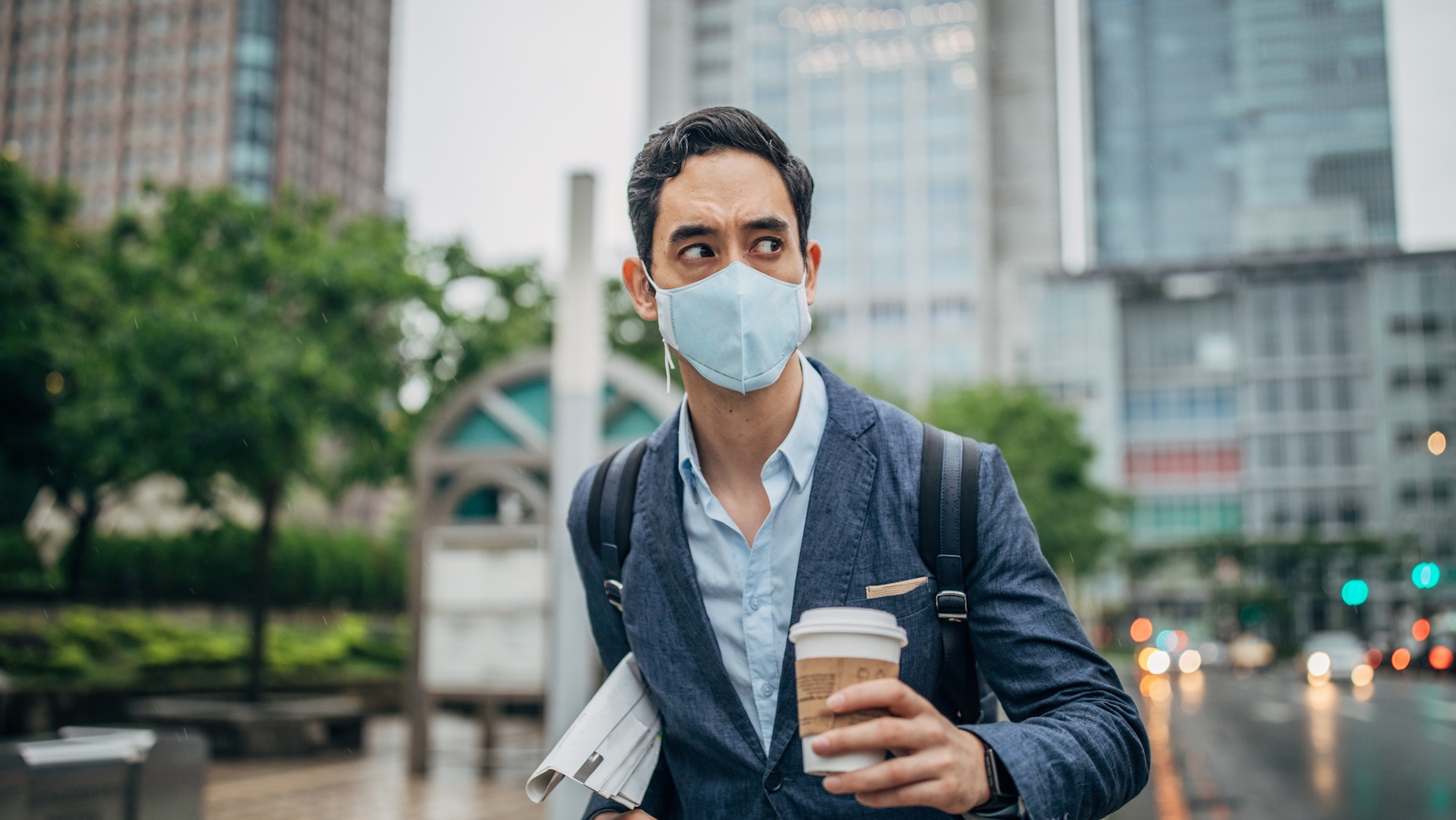As the Covid-19 coronavirus continues to spread, top health officials are considering shifting their stance on whether all citizens should wear masks for protection.
“Although specialized masks are available to protect the wearer from small, viral particles, most regularly available masks were not developed to protect the person wearing them,” said OMRF President Stephen Prescott, M.D. “Masks, traditionally, should be put on people who are coughing or sneezing and might spread the virus to provide some containment.”
That remains the official stance of the World Health Organization and Centers for Disease Control and Prevention, but perhaps not for long. This guidance may change because of a pandemic in which large numbers of seemingly healthy people are unknowingly ill.
“A huge problem we’re seeing with Covid-19 is that many people who are infected have no symptoms at all,” said OMRF immunologist Eliza Chakravarty, M.D. “People may be infectious and able to pass it along for 48 hours before they feel sick. That’s terrifying.”
“So many individuals are asymptomatic or presymptomatic that they could be infecting countless others and not have any idea,” she said. “And this isn’t likely to stop, because many people have no option but to get out and go to the doctor or pharmacy or purchase basic supplies like groceries.”
For this reason, Chakravarty, like many other experts, has begun recommending that healthy individuals wear masks as they go about their day-to-day lives.
During the 2003 outbreak of SARS, another coronavirus, studies found that mask-wearing was actually more effective at preventing viral spread than washing hands 10 times per day or wearing gloves. These findings, said Chakravarty, make sense.
“Wearing a mask helps remind you to follow social distancing rules and generally keeps you more aware,” she said. “You’re more likely to stay away from others, wash your hands, and avoid touching your face.”
Also, said Chakravarty, if more people wear masks, it reduces the stigma for at-risk individuals who must use them to protect their health.
“Immune-compromised people or the elderly don’t want to stand out in a crowd,” she said. “It’s a reminder we’re all in this together and that we all need to do our part.”
She encourages people to take a do-it-yourself approach, which ensures that professional-grade masks are preserved for medical personnel on the front lines of the pandemic.
“There are many places on the internet where you can find instructions for making facemasks yourself, as well as how and where to donate them,” said Chakravarty. “If you can sew, it’s a great way to contribute to the solution and aid those in need.”




